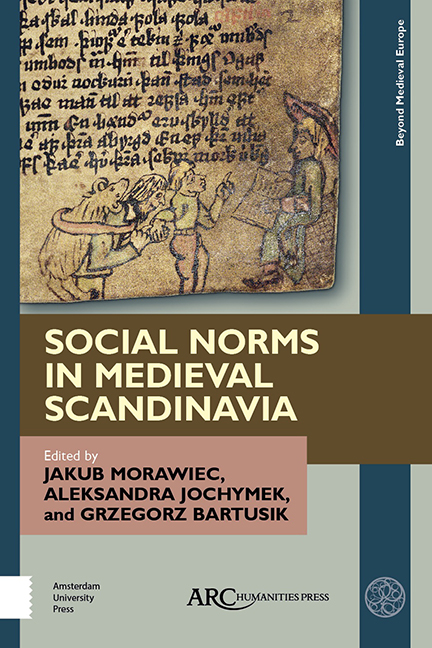Chapter 15 - Discipline or Punish? Travels and Outlawry as Social Structures in Medieval Iceland
Published online by Cambridge University Press: 20 November 2020
Summary
OUTLAWRY IS A concept and phenomenon widely mentioned throughout Norse sources from the Middle Ages, both legal and literary. In theory, being an outlaw meant to be thrown outside the protection of the law. As a legal sanction, Scandinavian outlawry has often been discussed as a subset of a legal Germanic apparatus, and enlightened through the concept of Friedlosigkeit (loss of peace; friðlauss in ON). In the absence of death penalty, being ripped from the law's protection was thus the harshest punishment possible. Its main function was to sanction criminal or extreme anti-social behaviour by making a man liable to be killed by anyone within a given territory, this without any legal consequences. Basically, it enabled lawful revenge. Yet, in practice, outlawry took different shapes: a life of adventures abroad, a lonely life in the wilderness, a manhunt to the death, and sometimes even embodied an act of political resistance. It mostly resulted in an exile rather than in a manhunt, and therefore had also the function to make good riddance of a trouble-maker, and to restore peace within a lawful territory.
Outlawry in medieval Scandinavia has in recent years been a growing source of scholarly interest. It has been approached from a philological perspective, from a legal and religious perspective, and some texts have tackled the figure of the outlaw from the monstrosity perspective, or from a wide literary and folkloristic perspective. From these approaches, outlawry has been mostly analyzed in terms of exclusion, marginalization, disruption, or otherification, as a clear-cut dichotomy or as a process towards exclusion. They followed the idea that being declared an outlaw, to be put outside the protection of the law, meant to be expelled from something: from the legal sphere, from the religious sphere, from the social sphere and/ or even from the human sphere. Even though outlaws kept ties with society and still interacted with its members, most analyses stem from their exclusion as a premise.
There is obviously no way to deny the fact that outlawry is indeed an exclusion, especially on a legal and individual level.
- Type
- Chapter
- Information
- Social Norms in Medieval Scandinavia , pp. 255 - 268Publisher: Amsterdam University PressPrint publication year: 2019

